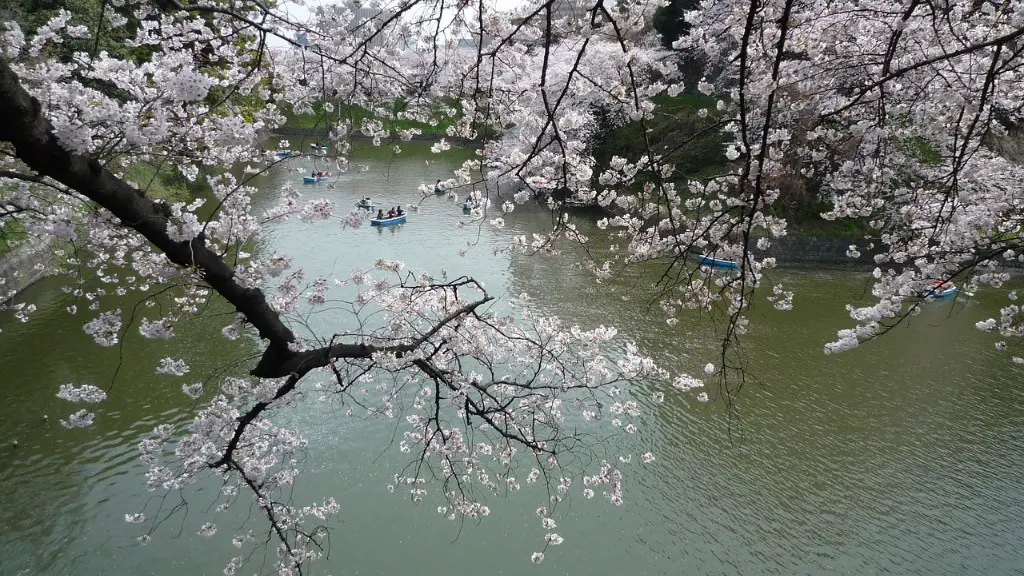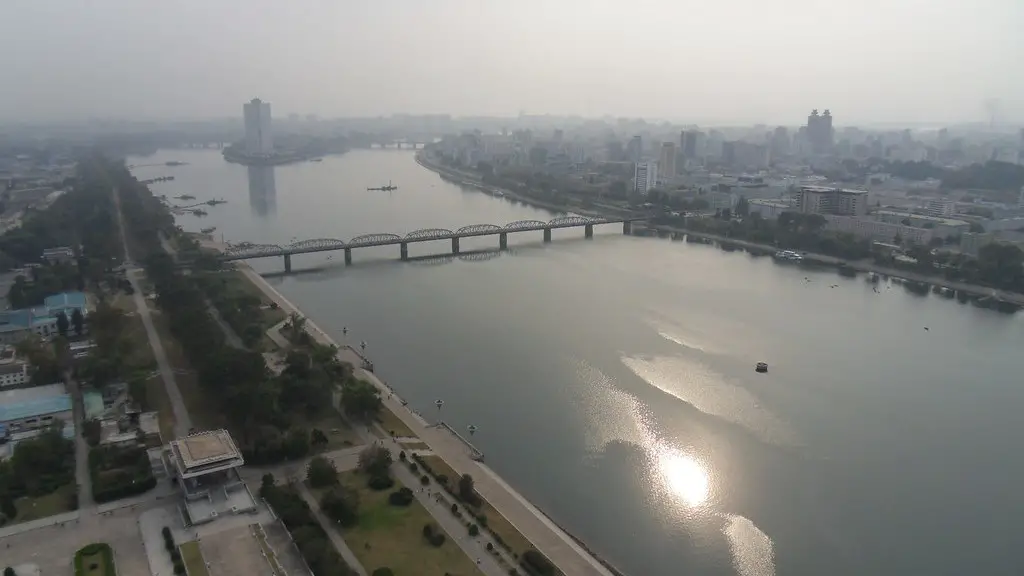Origins of Korean Division
Korea has had an unsettled and tumultuous history, with periods of occupation, unified power and war. After Japan annexed the Korean peninsula in 1910, its grip remained until the Japanese defeat in the Second World War. As the world looked to the post war order to restore balance, North and South Korea were established as separate occupied zones, assigned to the Soviet Union and the United States respectively.
This strategic dividing of responsibility amongst Allied Powers is a context of the overarching tension between the two major super powers of the time. Such a power divide allowed further dissolution of the region, as each of the Occupying powers pursued their own specific interests. South Korea for example, embraced the US goal of extirpation of leftist-influenced ideology and doctrines in favour of the development of a strong central government and the economic ideology of capitalism.
Cold War Influences
The period of occupation and subsequently, the evolving ideological dynamics, ultimately fostered a divide in the peninsula, grounded in ideologically opposing views regarding the future of Korea. During the onset of the Cold War in 1945, North Korea was closely associated with the Soviet Union, while South Korea was closely allied to the United States. With North Korea becoming a communist state in 1948 and South Korea a capitalist democracy, it was only natural that polarising preconceptions between the two states would further develop in the coming years.
The Cold War further exacerbated this divide as both countries declared their indivisible sovereignty and opposing policies. Inevitably, claims of Korean reunification soon became dismissed as unrealistic or impossible. Following the Chinese intervention in the Korean War of 1950-53, the hostile atmosphere became even more entrenched.
Divided By Ideology
Today, the Korean Peninsula is an ideological divide between the increasingly democratic and capitalist South and the largely isolated and Stalinist-style government ordains of the North. Kim Il Sung’s rule as the first and only president of North Korea from 1948 to his death in 1994 further deepened the distrust between the two states. His doctrine of Juche, a Korean interpretation of self-reliance, and the focus on building a nuclear defence, are key features of North Korean policy maintained to date by his grandson, Kim Jong Un.
Unlike North Korea which has maintained a socialist based economy ever since, South Korea has gone through a series of `miraculous’ development in the past decades. The state, led by General Park Chung Hee from 1961 to 1979, witnessed double digit economic growth for few consecutive years and rapidly became one of the most developed countries in the world. This achievement was accompanied by the establishment of a robust, secure democratic system and policies of GDP-oriented growth which led to South Korea’s acceptance into the Organisation for Economic Co-operation and Development (OECD).
Modern Day Significance
The tension between North and South Korea continues to this day and is borne out in a series of diplomatic stand-offs, provocative actions and most recently, North Korea’s nuclear weapons testing.
Due to their long stretches of border, the two Koreas share a distinct geographical and cultural heritage. Over the years, mutual hatred and distrust have become embedded in both societies let alone the ruling governments, born out of the ideological and power gaps.
Furthermore, it is speculated that leaders of both North and South Korea have an interest in maintaining the status quo, due to the perceived benefits of playing off a divided status. Much of the North’s nationalist identity is founded on the notion of unconditional opposition and defiance to the South. In recent times, the South has engaged in bilateral trade with theNorth, particularly via the Kaesong Industrial Complex – a manufacturing park for South Korean companies, set up in Kaesong, North Korea. Internal criticism of this model has grown in South Korea however, with trade tapering off in recent years.
Socio-Political Effects
The political divide between North and South Korea has been further complicated by the human cost of separation. Millions of families have been left divided, with many losing contact since the setting up of borders between the two countries; this is particularly pertinent given the close bond Korean families traditionally maintain.
Reintegrating the two states is a challenging proposition; the sense of national identity in the two countries is exceptionally distinct. In the North, the government operates an oppressive system, whereby its citizens are kept in relative isolation from the outside world. In stark contrast, the South has embraced a social democracy, allowing its citizens to engage with the global order.
International Relations
Global superpowers have become increasingly involved in mediating the situation over the recent decades; under Presidents Trump, Obama and Bush several attempts have been made to attempt to mediate.
The US’ recent policy of `maximum pressure’ has seen sanctions placed on North Korea in an attempt to enforce disarmament negotiations and compel it to pursue a more moderate course towards the South. This approach has been met with mixed success, particularly over the past decade, when protracted negotiations concerning Pyongyang’s nuclear arsenal failed to reach co-operative consensus.
North and South Interactions
In the past decades, with support from the international community, several peace offerings have been instituted with varying degrees of success.
A concrete example includes the 2018 Olympic Games, where the two Korean teams marched together during the opening ceremony and competed in a number of sports. The divisions between the two countries are deeply entrenched however; the North still restricts its citizens’ movements while the South has grown to become a prosperous member of the global community.
Implications of Growing Korean Political Divide
The Korean divide has decades-long geopolitical and security consequences; exacerbated by the increasing nuclear and military posturing of both North and South Korea. Persistent tensions and the rapid technological advancement of North Korea, along with its refusal to compromise has heightened global concern over its ambitions.
This situation is heightened by missile testing conducted by North Korea and general inflammatory rhetoric from both sides. Both nations have huge military budgets, yet the possibilities of a full-scale conflict have resulted in stalemated negotiations and treaties, due to undefined security guarantees for both sides.
Implications on the Global Order
The current situation not only serves to destabilise the region, but also has global implications, with
the US, Russia and China all fiercely competing for influence, in what is increasingly becoming a zero-sum game.
This can be seen in the form of economic and military aid, where Moscow and Beijing routinely provide North Korea with a means to sustain its military advancements and influence. The inimical conditions and radioactive rhetoric between the two Koreas have implications for the global communities, most notably in the form of potential Chinese or Russian proxies, or a costly and protracted ruling by an international agent.
Conflicting Interests Between North and South
The evolution of the Korean nations presents various challenges, including the fundamental issue of conflicting political goals and the different ambitions of the two countries.
The North and South are divided not only by communism and democracy, but by the fundamental differences in their understanding of nationalism.The North views unified Korea as a single, inherently leftist state; while the South views it as a unified democratic state with free enterprise and a free press.
This is an outcome of the different paths taken in the two countries; the North is grounded in the authoritarian personality cult of monolithic, militaristic power and maintains a strict dogma of self-reliance; while the South has embraced a more progressive route towards regional, international and economic cooperation.
Dilemmas of Korean Reunification
Unification between the two Koreas is a complex issue, and the idea of opening up the border faces numerous practical challenges; economic, security, geopolitical and cultural.
The economic and social implications of unification are particularly notable: the per capita GDP of North Korea remains substantially lower than South Korea, meaning that any attempt at reunification carries with it the requirement of massive economic support from the South. Furthermore, the cost of integrating the North’s largely state-controlled economy with the open markets of the South would be incredibly high.
Given its lack of international recognition and low export rates, North Korea’s economy is largely self-contained and consequently, has few sources of foreign direct investment. The nation also relies heavily upon Chinese aid; despite Chinese investments, the North’s financial condition is highly dependent upon sanctions resolution.
International Involvement
International support is pivotal in reunifying the two Koreas; a number of countries have already agreed to provide support, while several international organizations, including the United Nations, have organized committees to mediate the talks.
The importance of bringing both states to the table would be in reaching a peaceful settlement and providing security assurances should reunification be achieved. The involvement of China, alongside South Asian and European countries is also instrumental in ensuring future proportionate aid and preventing any nation from exerting undue influence.
In order for reunification to take place, both countries must be willing to negotiate and compromise, and question their policies and objectives in order to reach consensus on reunification. To this end, all parties must be involved, as well as other countries which have a direct or indirect stake in the Korean Peninsula. In addition, the International Community must guarantee and respect the sovereignty of both sides, as well as the core human regime and international human rights of all individuals.



